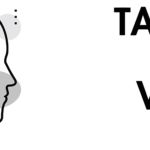A novel dialogical therapy (Talking With Voices) in comparison to treatment as usual in adults with
distressing and persistent auditory hallucinations: A randomised controlled trial to investigate the efficacy of a treatment strategy targeted at trauma-related mechanisms
You are being invited to take part in a research study. Sometimes, because we do not know which way of supporting people is most helpful and effective, we need to make comparisons. If you become a participant in our study, you will therefore be asked to either 1) continue with your usual mental healthcare, OR 2) to continue with your usual mental healthcare plus take part in a one-to-one therapy for supporting voice-hearers called Talking With Voices (TwV). This will be decided by chance using a computer and you will have an equal 50% chance of being in either group.
It is important for you to understand why the research is being done and what it will involve. Please take your time when reading this sheet to decide whether or not the project is right for you. Feel free to ask us if anything is unclear, or if you would like more information. We will be very happy to answer any questions you might have.
What is the purpose of this study?
Although hearing voices that other people can’t hear is a common human experience, it can sometimes cause a lot of distress and be difficult to cope with. Research has shown that this may often happen when voices are related to negative emotions and stressful events in the voice hearer’s life. As such, health services recognise that it can be helpful to provide psychological therapy (sometimes called ‘talking therapy’) to people who struggle with hearing voices. Such therapies may reduce feelings of distress and help people find new ways of coping.
TwV is a form of therapy that comes from the work of the International Hearing Voices Movement. It is based on the idea that voices can often reflect real-life conflicts and difficulties. For example, a person who had a time in their life when they were hurt in some way and felt very afraid may later hear voices which are angry and threatening. In this way, the voices draw attention to problems that may have happened in the past or be reoccurring in the present. TwV believes that understanding more about the links between voices and negative emotions can provide useful information for helping the person make sense of their experiences. In the long-term, this can also be helpful for learning new ways to cope with the voices and become less distressed by them.
TwV involves a therapist ‘talking’ to the voice by asking it questions. The voice hearer then listens to the responses and repeats them out loud to the therapist. Over time, the therapist learns more about the voice(s) in order to support the voice(s) and voice hearer to develop a more peaceful relationship. In addition, the therapist and voice hearer work together to try and understand how the voices may relate to particular problems in the person’s life. You can find out more about what TwV involves in the separate information sheet entitled ‘Frequently Asked Questions for Participants and Their Voices.’ We have already run a small study amongst 50 voice-hearers which showed that TwV was seen as an acceptable form of support and could be delivered in the NHS. We now want to run a much larger trial to understand whether TwV is an effective treatment and, if so, what aspects of it may be particularly helpful for people.
Who are we looking for and do I have to take part?
We are looking for people who are over the age of 16 who have heard distressing voices for at least a year and are not receiving another type of talking therapy. Because a central aspect of this therapy is engaging with voices, it is important that you and your voice(s) feel comfortable with the idea of a therapist asking the voice(s) questions.
It is completely up to you if you would like to be involved and you should not feel under any pressure. If you decide to take part but wish to stop therapy, you can choose to continue doing the research assessments, or you can also choose to stop both. You are always free to completely withdraw at any time without having to give a reason. Regardless of your decision, no one will be upset with you, and it will not affect the care you receive from mental health services either now or in the future.


